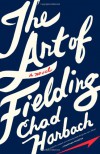
A finely-crafted science-fiction adventure story about writing a science-fiction adventure story, in which a recently divorced librarian take a cross-Atlantic cruise and sheds her inner good girl, with some help from her best friend "Pat Murphy," a sci-fi writer named Max Merriwell, and the dreamt up authors of his own novels, Mary Maxwell and Weldon Merrimax. All this, with a healthy dose of (easily comprehended) quantum physics, multiple possibilities made co-present through the imagination, UFOs, giant squids, and other monsters.
Actually, this novel follows on the heels of two others written by Pat Murphy, There and Back Again (by Max Merriwell) and Wild Angel (by Mary Maxwell by Max Merriwell), both of which are read by librarian Susan while on board the cruise ship. This is a wonderful, through-the-looking-glass type sequence of "who is dreaming this book?' questions. Not having read these earlier books, I was at no loss for both enjoyment and understanding, and now look forward to reading those as well.
Adventures in Time and Space is fun and never truly scary, even with storms and monsters, but it nevertheless tackles some important themes. How does a life-long "good girl" begin to imagine herself anew? How does she confront the real monsters of her past, whether the sadistic violence that strikes like lightning or the passive violence of a mother who prefers her daughter to be a doll rather than a kid? How does a writer go about, not only the craft of writing, but the task of reimagining the self in such a way that the imagined self is "realer" or "more true" than what began?
I should note that Murphy's book is not specifically a science-fiction book in content, although it is clearly written by a science-fiction author and one which is attempting to investigate the creative process involved in science fiction. This should neither dissuade or attract readers - I recommend this because it is smart, and funny, and will make you think and laugh and read it all the way through without stopping.




















